Hello everyone,
I never really intend to have a theme when I write this newsletter, but this edition has a cycling theme. I have never been on a cycling trip. Have you? If so, would you like to talk about it and have a brief interview for the next or a future edition?
I have, however, travelled through Ecuador for two weeks and for part of that trip, my friend and I biked through mountain roads with a guide. That was beautiful and difficult! I lived in Chicago then so I was not regularly biking any hills. If you’ve never been to Chicago let me assure you that the landscape is as flat as a pancake.
I’ve also rented a bicycle on various trips for day rides or for a few hours. I’m not opposed to a cycling-only trip either - I think I’d personally want to have a mix of hotels/inns and camping though. I cannot see myself cycling for a week or more and sleeping on the ground the entire time. So, if you have not guessed by now, this newsletter is all about travelling by bicycle, bicycle tours, and anything related to two-wheeled travel!
Bicycle Links!
World Nomads highlights 5 cities that are investing heavily in bicycle infrastructure. Not “the best cities for biking” or anything like that, but cities you might not think of as traditionally bike-friendly. Making big cities bike-friendly and cultivating a culture where motorists are also bike-friendly and bike-aware is another animal entirely.
Luxury bicycle tourism is a growing tourism niche. Meh, what do we consider luxury? That can be a very relative term. That article states that trips can run into 4 figures but if the bike rental and support are provided, luggage is transported via a van, and hotels and most meals are covered for 6-7 days, then that is 4 figures right there, easily. I think the luxury is that someone is doing all of the planning for you. Because I would do one of these tours, I am 100% in, but I don’t exactly consider sitting on a bike pedalling for 6-7 days through the countryside as a luxury. It is fun and adventurous and full of beautiful scenery. Luxury is not my thing though so I think there needs to be a different way to categorize these trips. Thoughts?
Some of the best bike routes/trips in Canada.
A cycling trip through Jordan, if you need more inspiration.
2022’s best cycling trip suggestions from Lonely Planet.
Cycling through Switzerland.
A mother-son cycled through the Netherlands at peak tulip viewing time. Who wants to do this one with me?! Note, you have to have or create a Lonely Planet account to read that one but it is free.
A book about cycling to follow the monarch butterfly migration. If you buy that, please buy from a local bookseller in your community! This one has been added to my Goodreads list.
Are you tempted to plan your own cycling vacation now? Afar has some tips.
And finally, one non-cycling link because I’m excited about it, a UK airport is dropping those SILLY LIQUID RULES. When one takes a risk the others soon follow, hurrah. It is a new technology that allows this, please don’t tell me if it is related to AI in any way because I do not want to know, thank you for understanding.
Urban Bicycle Tourism
This edition’s article is about the bike culture in…Copenhagen. You might have guessed that was coming! It was going to be the Danes or the Dutch, right? In this particular study, the researchers looked at the great Copenhagen region and that includes Malmo, Sweden. Both have similar bicycle usage statistics with only one in five households owning a car in central Copenhagen. The researchers note that both cities are pretty flat, have climates that make cycling very pleasant in 3 seasons and despite cold winters, most cycle year-round anyway! And, both cities have made bicycle infrastructure a political priority for years - but in different ways, as you’ll see.
Copenhagen’s urban planning and sustainable development plans integrate cycling into the city infrastructure and connects outlying regions to the city center. It also connects bikes to public transit hubs. Malmo’s bicycle infrastructure lacks a bit in that regard and focuses more on rural bike lanes and connecting locals to nature by encouraging rural cycling.
The researchers note that this difference in approach to bicycle urban development has allowed Copenhagen to slow down the use of cars in the city center, making residents and tourists feel it is very safe to cycle. Thus, there are bicycle tours for tourists, businesses created around those tours, and tourist attractions created along those routes as well.
Both Copenhagen and Malmo do offer opportunities for tourists to acquire bikes, hotels have them on loan. Malmo has a hotel built for bicycle tourists with parking, a bike mechanic, access to a cargo bike, etc. Both cities are making it fairly easy to be an urban bicycle tourist. Copenhagen has numerous bicycle tours that cater to different interests and the city of Copenhagen’s official tourism site lists seven tour companies that offer cycling tours of the city. Malmo, in comparison, does not have as robust a list of bicycle tour offerings and the few tours that exist do not cater to different tourist interests. This sounds like a budding business opportunity for anyone into cycling tourism in Malmo, in my opinion.
Why the difference? As a municipality, Copenhagen's urban planners recognized that “bicycle tourism is seen as a benefit in relation to public investment in bicycle infrastructure” (Nilsson, 2019). Nilsson compares that to the Swedish part of the region, Malmo, where bicycle tourism is seen more as part of rural tourism.
I’ll let Nilsson speak for himself here:
During the last couple of years “the bicycle girl” seems to have replaced “the little Mermaid” as an important symbol of Copenhagen (Hedström, Citation2016, p. 33). Media pictures of people, especially women, riding bicycles in the city often show people smartly dressed in all kinds of weather. This refers to the cities identity of being blond, smartly modern and well designed. As a visitor, you are invited to take part in this particular form of localness. Or as one bike rental company puts it: “Ride Copenhagen in style […] experience the city like a hip local” (Velorbis, Citation2017).
Cycling is an integral part of Danish culture and identity, particularly Copenhagen's identity. Nilsson writes that it’s fast, relatively cheap, good exercise, and practical. All of those things are appealing to practical Danes and as it is part of daily life there, it also became a tourist offering. The theme popping up over and over with tourism is that great places to visit are also great places to live.
Nilsson concludes by suggesting that Malmo has yet to fully capitalize on or create a bicycle image because it is not as much a part of the urban life and culture of the locals as it is across the border in Copenhagen. He writes that the big takeaway from this study is that bicycle tourism and a city’s cycling culture are not only very much connected and they must be so that the infrastructure is built and maintained. The cycling culture does not happen overnight and requires buy-in from all segments of society.
Source:
Urban bicycle tourism: path dependencies and innovation in Greater Copenhagen, Jan Henrik Nilsson, Pages 1648-1662 | Received 20 Mar 2018, Accepted 28 Jul 2019, Published online: 07 Aug 2019
Pedal away on your own adventure
If you are now inspired to take a cycling trip but you’re somewhere between bikepacking and going on one of the “luxury” tours, The Adventure Cycling Association has guided tours and self-guided routes. I once applied for a job there and I was one of the last two candidates for the role. They did not hire me but hired someone with more experience. However, the Executive Director of the organization called me to deliver the news that I was not selected and offered to chat with me or email me with feedback about my strengths and weaknesses. So, I am more than happy to plug them since they hire good people, it seems like a healthy work culture, and most of all because they do a lot to promote sustainable bicycle tourism. You can also check out their Get Involved page.
And finally, some bikepacking resources.
Proof that you can have a lot of fun on a bike while being a tourist, from me, below.
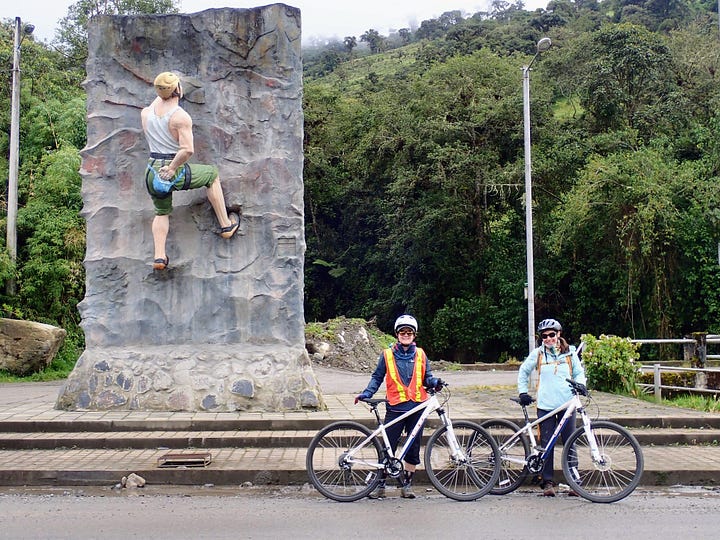
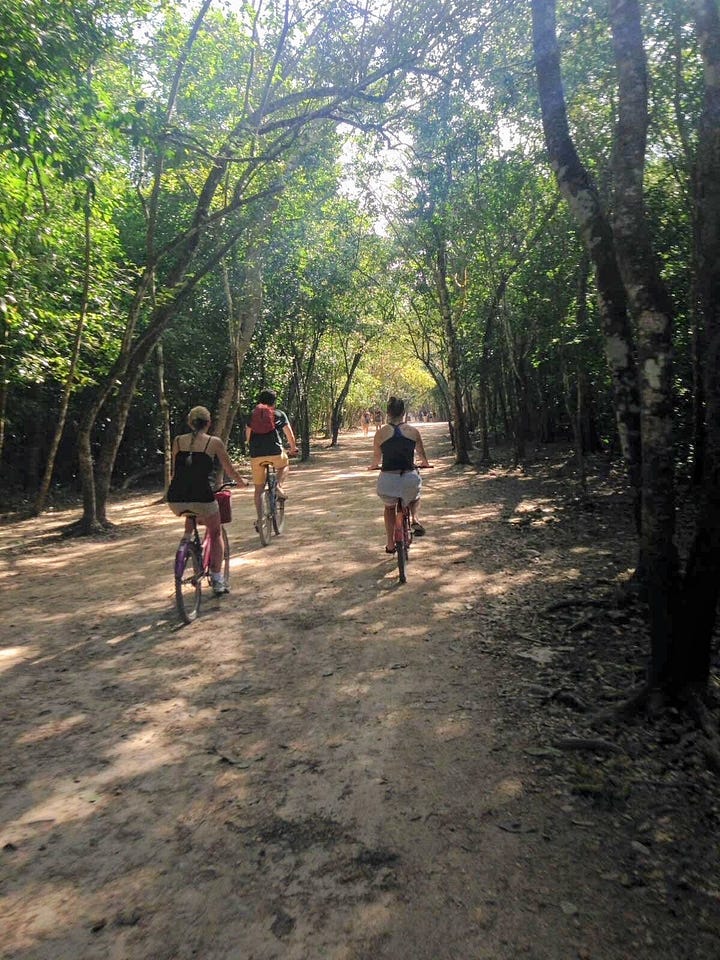
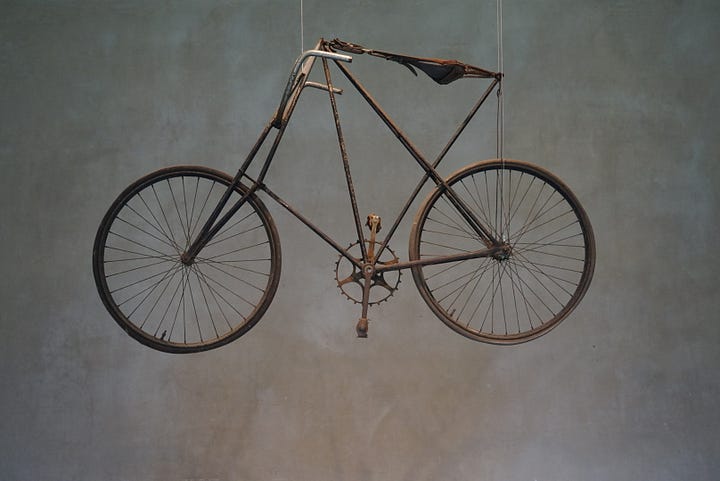
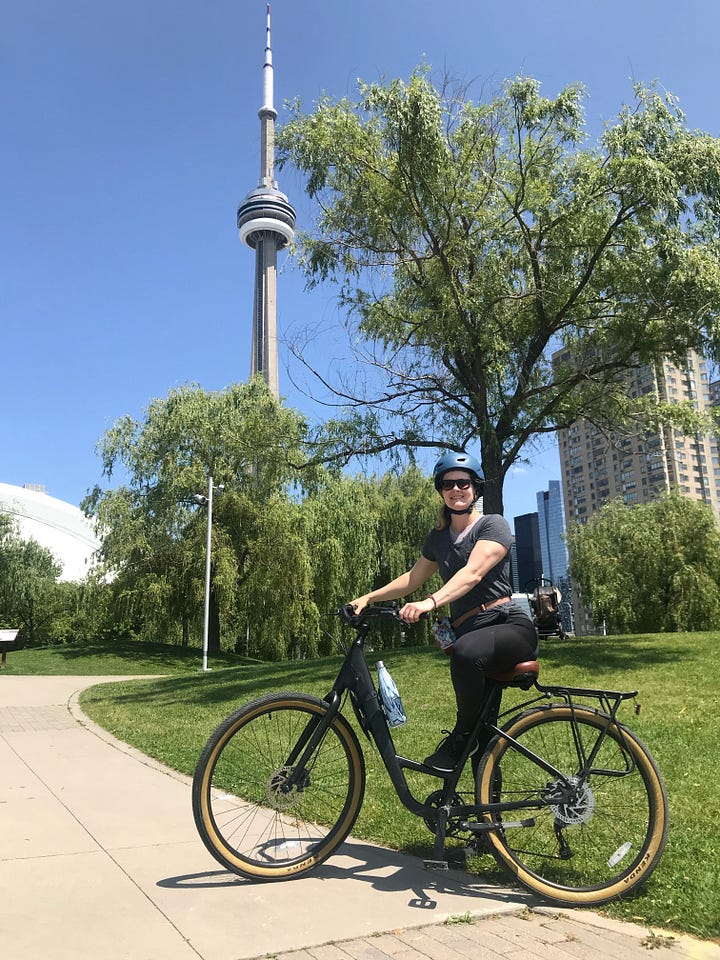
Consuming:
Just started listening to the audiobook Cultish on Spotify - did you know you could listen to Audiobooks on Spotify now? I still count audiobooks in my book count but I won’t call it reading and I know there are strong opinions about that. I find it harder to listen to audiobooks. I can’t just have them on, I have to be doing very little to retain the info. Anyway, would love to hear other opinions on audiobooks or any that you’ve enjoyed in the past.
I’m also listening to Out on the Lanai, a podcast about the Golden Girls. I just found it even though it has been around for a while! I love that show and have watched it in full multiple times. It is a good background show for when I don’t want total silence but don’t need to watch or listen.
I’m reading Becoming by Michelle Obama, I picked it up at a thrift store ages ago. I like reading all sorts of memoirs and honestly did not know that much about her! I have been enjoying it so far.
I am not reading as much lately because I’m furiously trying to knit a birthday gift and do some sewing projects. I just got selected as a test-knitter for a garment too. I am so excited about my first-time test knitting! It means I have early access to a knitting pattern, along with others of various abilities and we are knitting different sizes, to provide feedback to the pattern maker to perfect it before releasing it to the public for sale. This newsletter is certainly not going to turn into a place for my crafts but I might mention these things from time to time.
Finally, there are numerous books written about long bicycle journeys. I enjoyed this one.
Until next time!
Sonya

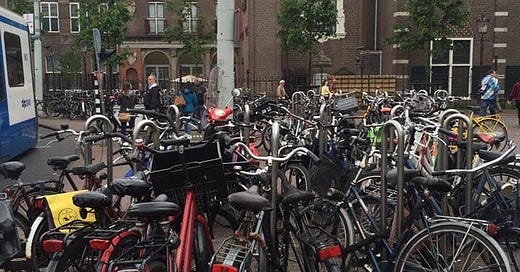




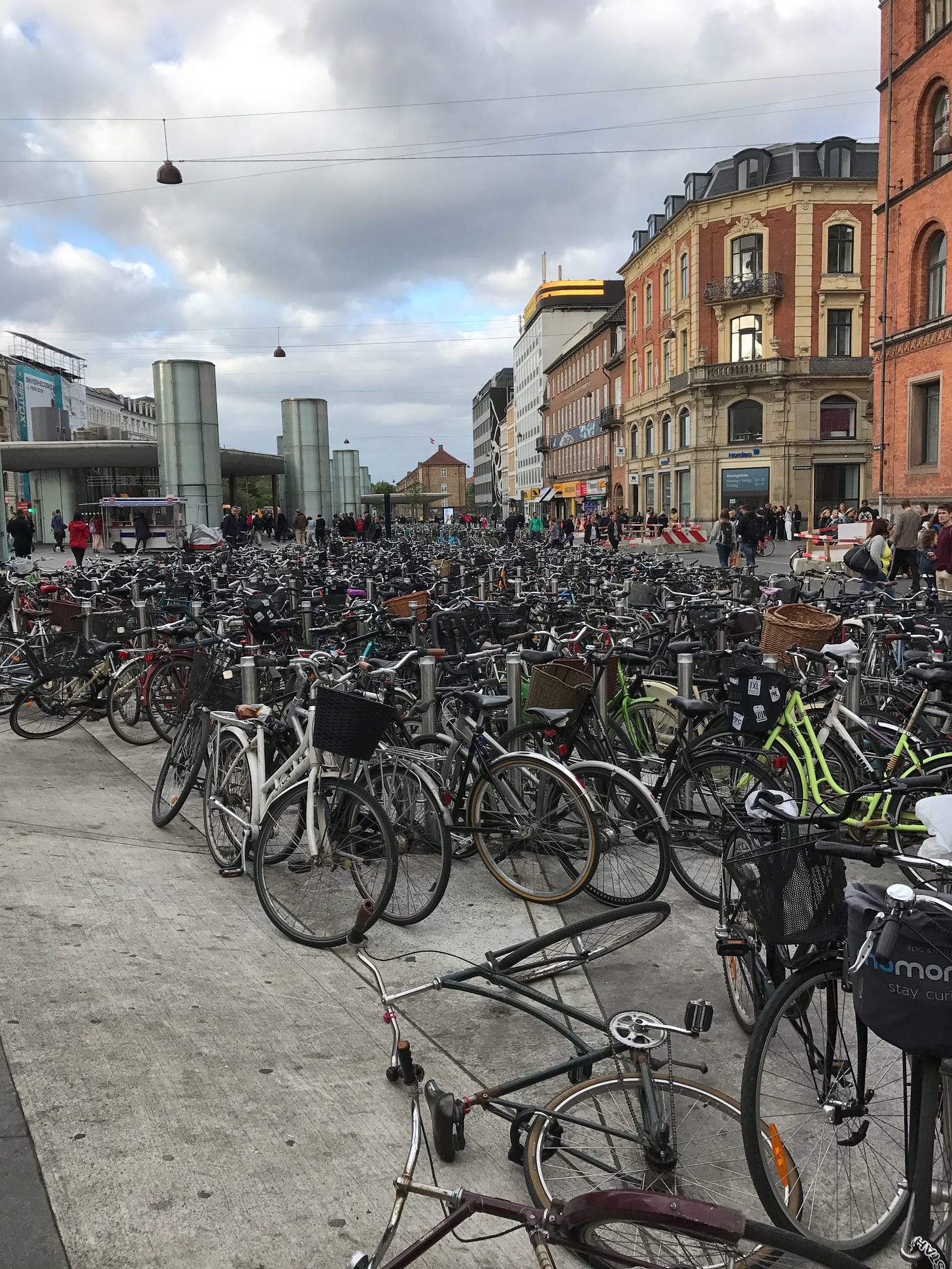
Interesting reads. Question: how does one pick a travel guide? There are so many..but also a visit to my local bookstore made me wonder whether we have moved away from this traditional method of information-gathering prior a trip?